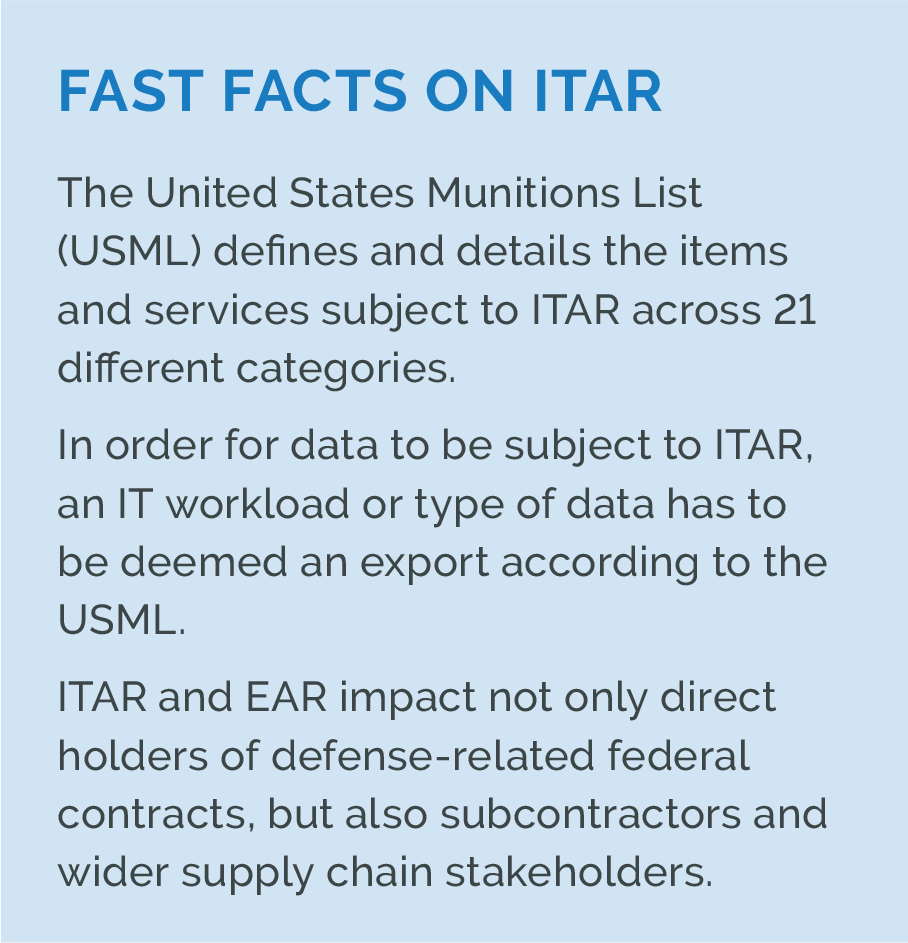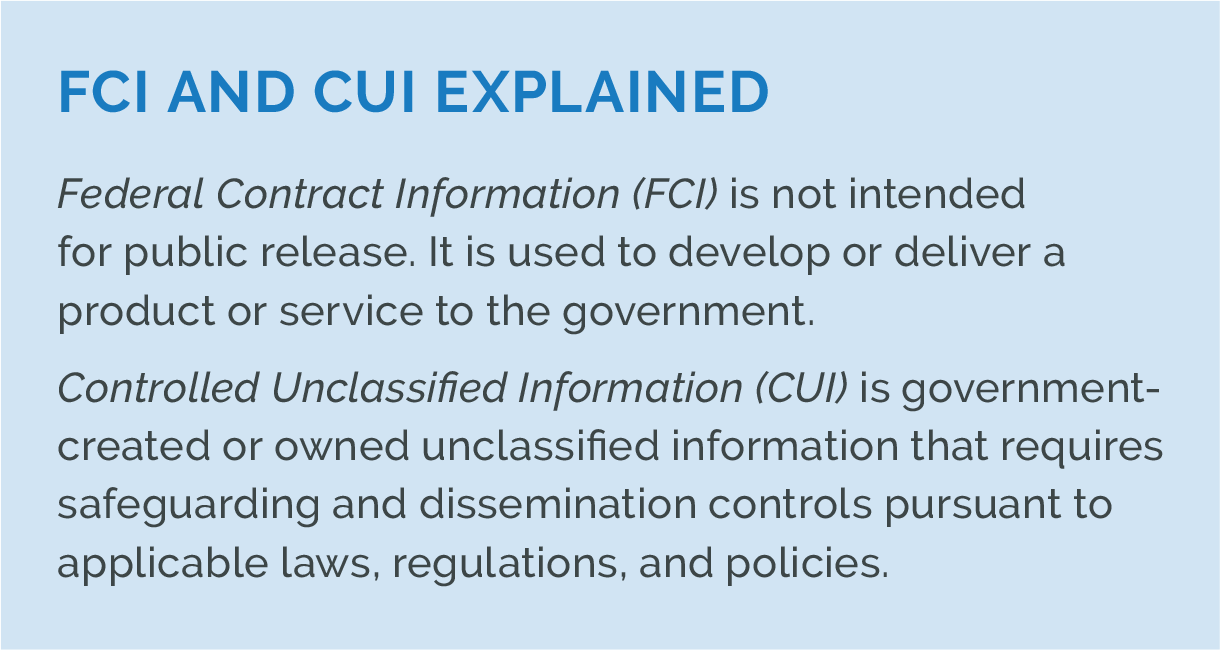ITAR and EAR
ITAR compliance applies to any entity in the United States that manufactures, sells, distributes, exports, or temporarily imports defense articles, services, or related technical data. These entities span the entire supply chain—from wholesalers, distributors, and vendors to contractors and third-party suppliers.
The items regulated under ITAR are defined in the United States Munitions List (USML)1. Product categories include:
- Firearms and ammunition
- Military vehicles
- Aircraft and associated equipment
- Spacecraft systems
 Associated technical data, software, and defense services are defined for each product category. Services encompass design, development, testing, repair, and maintenance.
Associated technical data, software, and defense services are defined for each product category. Services encompass design, development, testing, repair, and maintenance.
While ITAR regulates defense-related articles, EAR regulates the manufacture, sale, distribution, and export of dual-use items, commercial goods, technology, and data. Dual-use items that have both commercial and military applications, as well as items intended only for commercial use, are outlined in EAR’s Commerce Control List (CCL)2. Product categories include:
- Electronics
- Computers
- Telecommunications
- Sensors and lasers
- Navigation and avionics
- Marine
- Aerospace and propulsion
Companies must register for export licenses through the U.S. Department of State Directorate of Defense Trade Controls (DDTC)3 and the U.S. Department of Commerce’s Bureau of Industry and Security (BIS)4 to be ITAR and EAR compliant. As part of the registration, manufacturers define the type of product information that is under export control. This could include component descriptions, engineering drawings, specifications, test procedures, and bills of materials (BOMs). Regulated data must be controlled and not exported outside the U.S. or accessible to any non-U.S. citizen at any point during design, production, or sustaining activities unless covered under the export license.













 Associated technical data, software, and defense services are defined for each product category. Services encompass design, development, testing, repair, and maintenance.
Associated technical data, software, and defense services are defined for each product category. Services encompass design, development, testing, repair, and maintenance.

